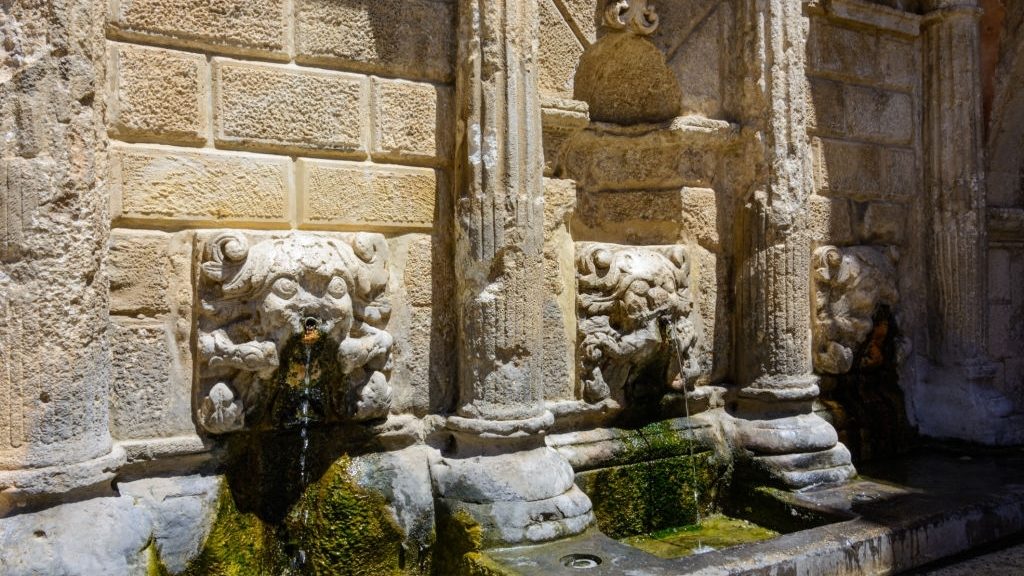
Monuments & Sights in Rethymno
Table of Contents
The Kara Moussa Pasha Mosque
The Kara Moussa Pasha Mosque was named after the Turkish commander of the naval campaigns that were conducted against the city of Rethymno. It is situated where the Venetian monastery of Agia Varvara used to be.
One of its most characteristic elements is a domed fountain, which was used for ritual washing, and also supplied the area with water. The Cesme type fountain has two façades, one on Arkadiou Street and one in the mosque courtyard. In the mosque courtyard the remains of the minaret can also be seen, as well as numerous grave steles, and a tourbes (a mausoleum of the Ottoman period), where the founder of the mosque is probably buried. Kara Musa Pasha was dismissed from his role as the Grand Admiral of the navy of the Ottoman Empire after a series of failed naval campaigns.
The Turkish school
The eastern entrance of the Turkish school can be seen next to the church of St. Francesco. It is the oldest school building of the city, and it is still in operation, housing the 1st Primary School of Rethymno. The surviving building was constructed in 1890, as designed by George Daskalakis. The original building, though (which does not survive today), was built in 1795, at Klapsa Edehem Bey’s expenses, a member of a well-known Turkish-Cretan family from Rethymno. A Turkish girls’ school operated here; girls were taught the Turkish and the Greek language, as well as various domestic subjects, whereas the boys attended school in separate buildings. From 1911 and on, it received Greek pupils as well, while from 1923 and thereafter, with the exchange of populations, it became an exclusively Greek school. The two-story building, which has 11 classrooms, has been listed as a preserved historical monument. The carved door of the eastern entrance is well worth noticing; the Ottomans narrowed the original Venetian one, and symbols of both conquerors are hewn into it. An impressive carving of a climbing vine, the all but destroyed carved lions and the symbols of the Ottoman Empire, with the Turkish half-moon, tell the history of the city itself.